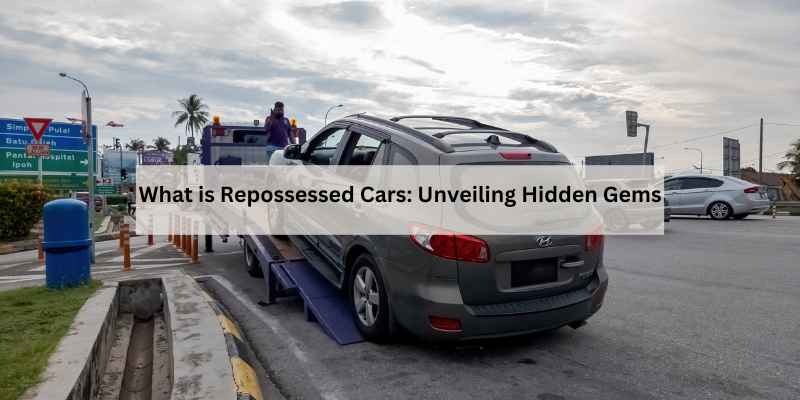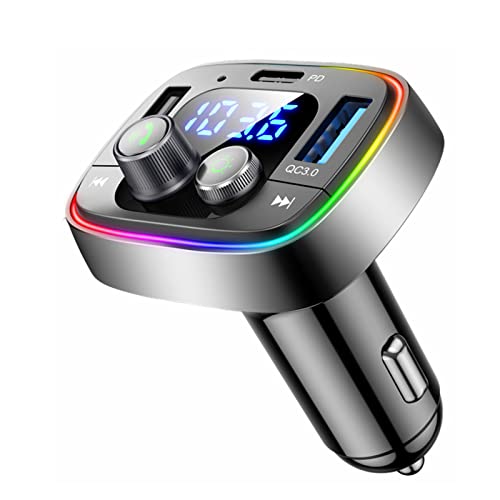What is Repossessed Cars: Unveiling Hidden Gems
Repossessed cars are vehicles that lenders reclaim after the owner defaults on payments. These cars are often sold at auctions or through dealerships at reduced prices.
Repossessed cars offer a unique opportunity for budget-conscious buyers. Financial institutions take back these vehicles when owners fail to meet payment obligations. Buyers can often find quality cars at significantly lower prices compared to traditional sales. Understanding the repossession process is crucial for making informed purchasing decisions.
Many repossessed vehicles are still in good condition, having been well-maintained before the owner’s financial issues. Buyers should inspect the vehicle thoroughly and consider a vehicle history report. Purchasing a repossessed car can be a smart financial move, provided buyers do their due diligence and research effectively.
The Basics Of Repossessed Cars
Repossessed cars are vehicles taken back by lenders. This often happens due to missed payments. Owners may not be able to keep up with their loan terms.
Common causes for car repossession include:
- Failure to make timely payments.
- Defaulting on the loan agreement.
- Bankruptcy filing by the owner.
The repossession process is straightforward. Lenders usually send a notice first. If payments are still not made, they hire a tow company. The car is then taken back without warning.
After repossession, owners may owe money. This is called a deficiency balance. The lender may sell the car at auction to recover losses.
Pros And Cons Of Buying Repossessed Cars
Buying repossessed cars can lead to significant cost savings. These vehicles often sell for much less than their market value. A potential buyer may find great deals that fit their budget.
On the flip side, there are risks involved. Many repossessed cars may have hidden issues. These problems might not be visible during a quick inspection. Buyers should always consider getting a mechanical check before purchasing.
Another concern is the history of the vehicle. It might have a poor maintenance record. This could lead to future repairs and costs. Understanding the car’s history is crucial for a smart purchase.
How To Find Repossessed Cars For Sale
Finding repossessed cars can be exciting and rewarding. Auctions are a great place to start. They offer both public and private sales. Public auctions allow anyone to bid. Private auctions may require registration. Always check the auction rules before attending.
Online repositories and listings are also valuable resources. Websites like eBay Motors and AutoTrader feature repossessed cars. Local bank websites often list their repossessions too. Searching these platforms can save time and effort.
Keep an eye on social media groups and forums. Many car enthusiasts share valuable information. Networking can lead to great deals on repossessed vehicles.
Preparation Before Bidding On Repossessed Cars
Before bidding on repossessed cars, researching vehicle history is crucial. Check the car’s accident records and maintenance history. Websites like Carfax and AutoCheck can help with this. Knowing the car’s past helps avoid surprises later.
Setting a budget is essential. Decide how much you can spend on the car. Include costs for registration, taxes, and insurance in your budget. Stick to your budget to prevent overspending. This will help you make smart choices while bidding.
Inspecting Repossessed Cars
Inspecting repossessed cars is essential for a good purchase. Focus on key points during inspection.
- Check the vehicle history report for accidents or damages.
- Examine the exterior for rust, dents, or paint issues.
- Inspect the interior for wear and tear, and check all features.
- Take a test drive to assess performance and handling.
- Review the tires for tread depth and wear.
Hiring a professional mechanic can save you money. They can spot issues you might miss. A good inspection helps ensure a reliable vehicle. Get a second opinion if unsure about a purchase.
The Bidding Process
Understanding the auction rules is crucial for successful bidding on repossessed cars. Each auction has its own set of guidelines. Familiarize yourself with these rules to avoid surprises. Pay attention to registration fees and bidding increments.
Strategies for successful bidding include doing research on car values. Knowing the market helps set a budget. Arrive early to inspect the cars in person. This provides a better idea of their condition. Stay calm and avoid emotional bidding to keep costs down.
| Strategy | Description |
|---|---|
| Research Values | Know the fair market price of the cars. |
| Inspect Cars | Check the condition before bidding. |
| Set a Budget | Determine your maximum bid beforehand. |
| Stay Calm | Avoid emotional decisions during bidding. |
After Purchase: Tips For Repossessed Car Owners
After purchasing a repossessed car, focus on registration and legal paperwork. Obtain the title from the lender. Ensure all documents are signed and dated correctly. Visit your local DMV to register the vehicle. Bring necessary documents like the bill of sale and insurance proof.
Routine maintenance is essential for your repossessed car. Check the oil, brakes, and tires regularly. Follow the manufacturer’s service schedule for repairs. Keep receipts for all services performed. This helps maintain the car’s value. Repairs can prevent bigger issues later. Regular care ensures a safer and more reliable ride.
Success Stories: Turning Repossessed Cars Into Treasures
Many people have turned repossessed cars into amazing success stories. These cars often have hidden potential. Some buyers find great deals and restore them.
One case study highlights a family who bought a repossessed SUV. They spent time fixing it up. After repairs, the SUV looked brand new and was worth much more.
Another story features a young man who purchased a repossessed sedan. He used his skills to upgrade the engine. Soon, he sold it for a significant profit.
These transformations show that repossessed cars can be more than just a bargain. With effort and creativity, they can become treasures.
Frequently Asked Questions
What Are Repossessed Cars?
Repossessed cars are vehicles that lenders reclaim when borrowers fail to make payments. These cars are often sold at auctions or through dealerships. Buying a repossessed car can offer significant savings, but it’s crucial to inspect the vehicle thoroughly before purchasing.
How To Buy A Repossessed Car?
To buy a repossessed car, start by researching local auctions or dealerships. Check online listings for available vehicles. Make sure to inspect the car and review its history report. Understanding the bidding process is essential to secure a good deal while avoiding hidden costs.
Are Repossessed Cars A Good Deal?
Yes, repossessed cars can be a great deal. They typically sell for lower prices compared to retail market value. However, potential buyers should be cautious. Ensure you conduct a thorough inspection and understand the car’s condition before making a purchase.
What Are The Risks Of Buying Repossessed Cars?
Buying repossessed cars comes with some risks. The vehicle may have hidden damages or mechanical issues. Additionally, there might be limited warranties or no return policy. It’s crucial to conduct due diligence and consider these factors before finalizing your purchase.
Conclusion
Repossessed cars offer unique opportunities for savvy buyers. Understanding the process can help you find great deals. These vehicles often come at lower prices, making them accessible options. Always research the car’s condition and history before purchasing. With the right approach, buying a repossessed car can be a smart financial move.







